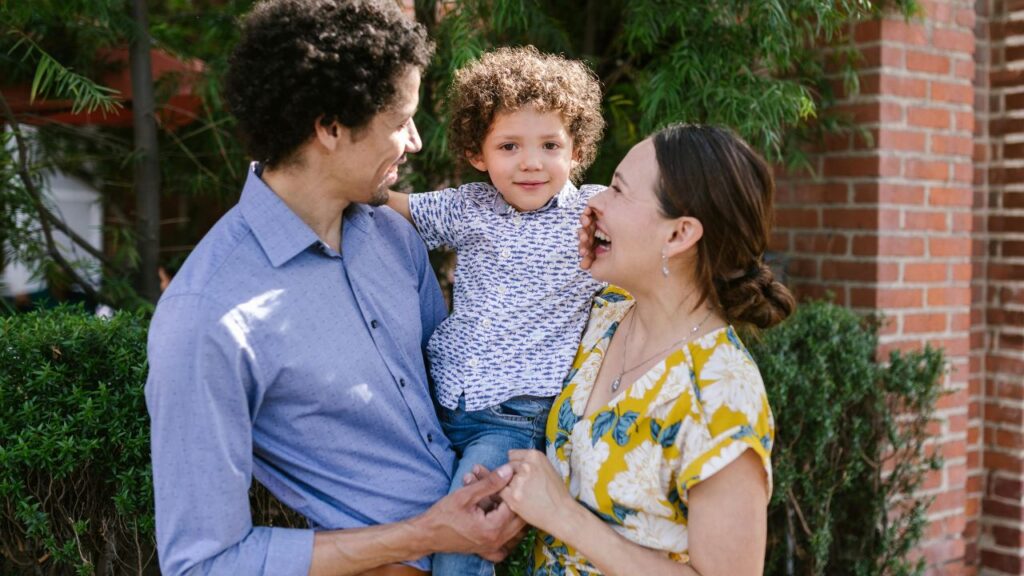Successful co-parenting isn’t about perfection—it’s about showing up consistently for your kids, even when things feel complicated behind the scenes.
Communicate like teammates, not exes

You don’t have to agree on everything, but open, respectful communication is non-negotiable. Keep it focused on the kids—not your history.
Think of it like running a household business together. Be clear, be kind, and keep it short and specific when emotions run high.
Create consistency between homes

Kids thrive on predictability, so aim to sync routines, expectations, and basic rules across both households whenever possible.
You don’t need to mirror each other, but you do need to be aligned on the essentials—bedtimes, school routines, discipline styles—so your child feels secure.
Prioritize the child, not your pride

It’s easy to fall into competition or blame. But kids pick up on tension fast, and it puts them in the middle—where they don’t belong.
Center every decision on what supports your child’s wellbeing. That might mean swallowing your ego now and then, and that’s okay.
Embrace flexibility—it won’t always go to plan

Life happens. Schedules shift. Kids get sick. Being rigid in the name of fairness can create more stress than it solves.
The more flexible you are (within reason), the smoother the relationship becomes—for you, your co-parent, and your child.
Use tech to stay organized and neutral

Shared calendars, co-parenting apps, or group texts can minimize miscommunication and help you both stay on the same page.
These tools reduce emotional back-and-forth and give you a neutral space to manage logistics without dragging in drama.
Don’t make your child the messenger

Avoid asking your child to pass along messages, keep secrets, or “check in” on your co-parent. It’s not fair and puts pressure where it doesn’t belong.
Keep adult conversations between adults. Your kid should never feel like the go-between in your relationship dynamics.
Support their relationship with the other parent

Even if your relationship ended badly, your child still deserves a strong bond with both parents. Encourage and affirm that connection.
Speak kindly (or at least neutrally) about your co-parent. Kids notice when you validate their love for the other person, and it builds trust.
Take care of your own emotional load

Co-parenting is easier when you’re not running on fumes emotionally. Therapy, support groups, or trusted friends can help you process the hard stuff.
You don’t have to carry it all alone. The stronger and calmer you are, the more anchored your child feels in this new dynamic.
